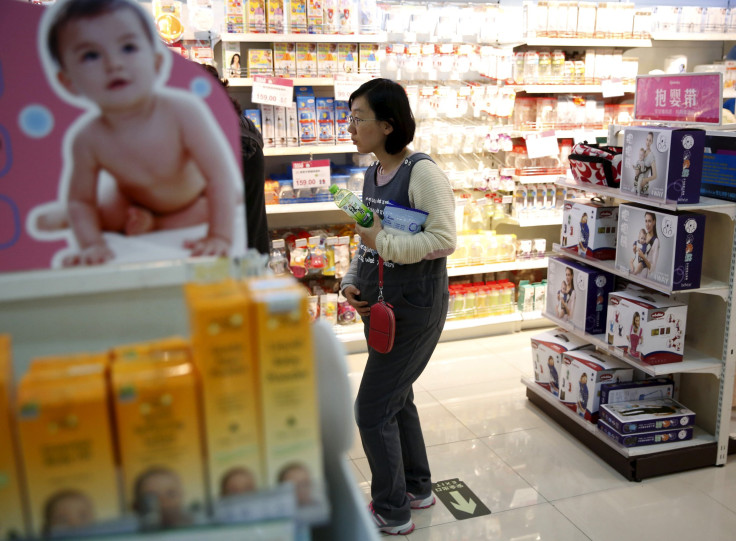China's Two-Child Policy: Authorities Mull Financial Rewards For Couples Who Go For Second Child

China is reviewing birth rewards and subsidies to encourage couples to have a second child, after surveys showed that many are hesitant to expand families due to economic constraints, the state-owned China Daily newspaper reported. The potential move was revealed by Wang Pei'an, a vice minister of the National Health and Family Planning Commission, at a social welfare conference, the newspaper reported Tuesday.
China held a conference in December last year to promote the new family planning policy with two children, which came into effect from January 2016. Wang Hesheng, also a vice minister of the National Health and Family Planning Commission, addressed the meeting attended by representatives from various fields.
At the time, Wang said that the two-children policy is an improvement to the original one child policy, and praised its "active role" in advancing China's new era of health and family planning initiatives. Wang also called for better publicity of the policy to improve the "sense of gain" within the public. He called for building of an extensive health syndicate and integrating public health alongside the new family planning policy, as stated in a report of National Health And Family Planning Commission, China.
Nearly half of Chinese newborns in 2016 are second child https://t.co/QnAp8qh7mb #china #births #population pic.twitter.com/WqwkRc6WQL
— GBTIMES (@gbtimescom) February 12, 2017
China's Second Child Policy Increases Births https://t.co/jiMjBd4oYF
— HPA-China & HPA-Global (@USChinaHPA) February 3, 2017
After China issued the two-child guideline in late 2015, the number of babies born in the country rose to 17.86 million in 2016 — the highest level since 2000, and an increase of nearly 8 percent over 2015. The policy was announced amid growing apprehension over the costs of supporting an aging population. China has a population of 1.3 billion people, out of which more than 220 million people (nearly 17 percent of the population) are 60 years and older. This figure will rise to more than 400 million by 2033 million, according to a report published last year by the China National Working Commission on Aging.
This is the first time that the top population authority has suggested such a move to boost the birthrate, Yuan Xin, a professor at Nankai University in Tianjin said, as reported by China Daily.
"It's not easy, and a 'baby bonus' plan should be applied evenly nationwide as all government policies should be transparent and fair for all," Yuan said, adding that the population authority alone cannot handle such a plan as it requires consensus and cooperation among all authorities.
According to a recent survey jointly conducted by Radio Guangdong News Channel and a number of fertility websites, majority of families that have a second child feel happier on doing so, Xinhua news agency reported. About 10,000 two-child families were interviewed for the survey.
© Copyright IBTimes 2024. All rights reserved.












